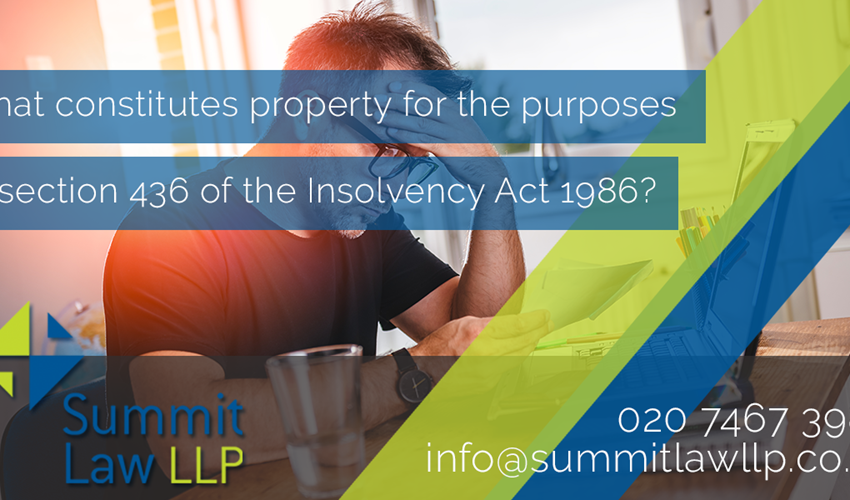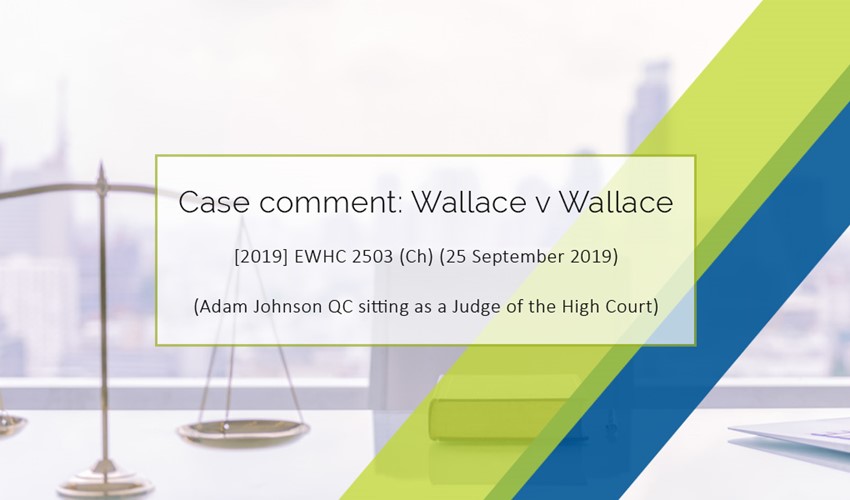Office holders discharging their evidential burden
Case comment: Wood v Watkin [2019] EWHC 1311 (Ch) (Judge Barber of the High Court) The above case serves as a warning on officeholder claims and provides further clarity on the expectation of the court in relation to office holders discharging their evidential burden The Facts Karl Watkin (the “Debtor”) was a successful entrepreneur, however, […]
Office holders discharging their evidential burden Read More »









